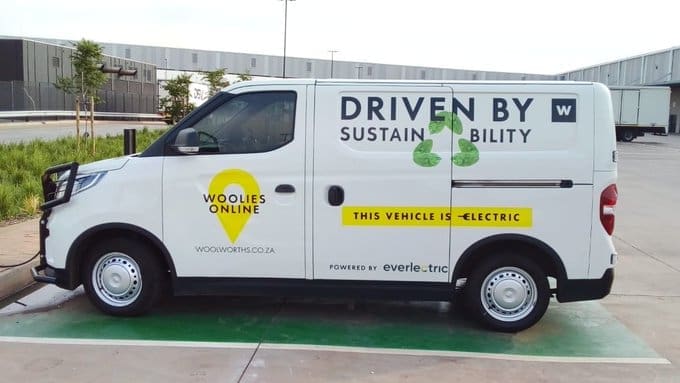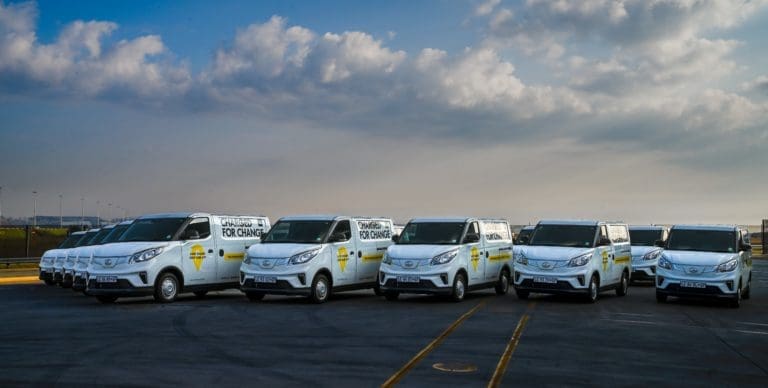JSE-listed retailer Woolworths announced on Monday that online sales rose 36.9%, contributing 6.2% of Food sales, driven largely by its on-demand service, Woolies Dash. For the 18 weeks ending 3 November 2024, Woolies Dash reported an impressive 54.4% sales growth.
Woolworths highlighted that its Food segment continues to deliver market-leading turnover and concession sales growth, with a 12.1% increase and a comparable-store growth of 7.3%, reinforcing customer trust in the Woolies brand. “This was driven by positive underlying volume growth on improved availability, ongoing innovation, and our enhanced overall value proposition,” said Woolworths.
“Excluding Absolute Pets, which was acquired in the fourth quarter of the previous financial year, Food sales increased by 9.6%,” Woolworths noted. Price inflation for the period averaged 6.2%, with trading space, excluding Absolute Pets, up 2.0% from the prior period.
Overall, group turnover and concession sales grew 6.5%, and by 6.8% on a constant currency basis over the comparable 18-week period. In South Africa, consumer sentiment is improving due to moderating inflation, easing interest rates, and a suspension of loadshedding, despite the continued constraints on discretionary spending.
In Australia, however, high interest rates and elevated living costs have continued to impact retail footfall and spending levels.
The Woolworths Financial Services book as of the end of October 2024 was 3.5% lower year-on-year, but rose 2.1% excluding legal book debt sales. The annualised impairment rate for the four months ending 31 October 2024 was 5.9%, a decrease from 7.5% in the prior period.
Momentum in the Fashion, Beauty, and Home (FBH) segment also accelerated, with turnover and concession sales rising by 3.5% and 2.8% on a comparable-store basis. The winter clearance boosted early-period Fashion sales, leading to a 1.9% FBH price movement, with Fashion seeing a 0.3% deflation. Beauty showed strong growth, up 20.6%, reinforcing Woolworths’ position as a leading beauty destination in South Africa. In line with Woolworths’ strategy to optimize space, net trading area decreased by 1.8% compared to last year, while online sales rose 36.5%, contributing 6.5% of FBH sales.
Woolworths, in partnership with DSV and Everlectric, is the first South African retailer to embark on an extensive rollout of electric panel vans (EVs) to deliver their customers’ online purchases. This move is part of the company’s commitment to reducing its carbon footprint and promoting sustainability in the retail industry.
“Last year we announced our commitment to electric delivery vehicles, and we are delighted to now have nearly half our fleet powered by the sun. The new electric vehicles have been introduced on selected routes in Cape Town and Gauteng with further rollouts and extensions into KwaZulu Natal planned to follow as soon as possible. We have bold sustainability goals and ambitions, which included the goal to have ZERO nett carbon emissions by 2040 so this investment is a big step towards these goals. On an annual basis these 41 vehicles will have the potential to save over 400 000 kgs of tailpipe carbon emissions. With the exponential growth of our online business, switching to electric delivery vehicles is a smart and sustainable solution that benefits everyone,” confirms Liz Hillock, Woolworths Head of Online and Mobile.
“To power the vans, electricity will be sourced as far as possible from renewable sources by utilising DSV’s extensive solar infrastructure at their Gauteng and Cape Town facilities. Should there be any exception to renewables recharging, DSV and Everlectric will work with an audit firm to procure Renewable Energy Certificates (RECs) to offset any indirect grid energy emissions.”


